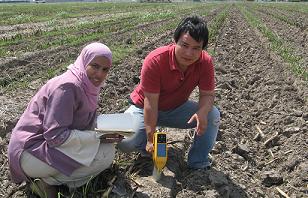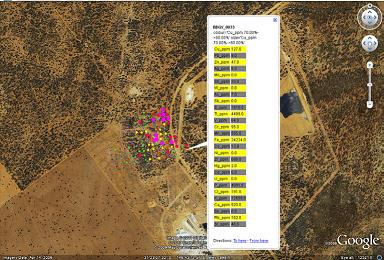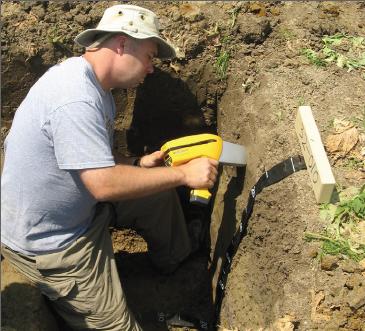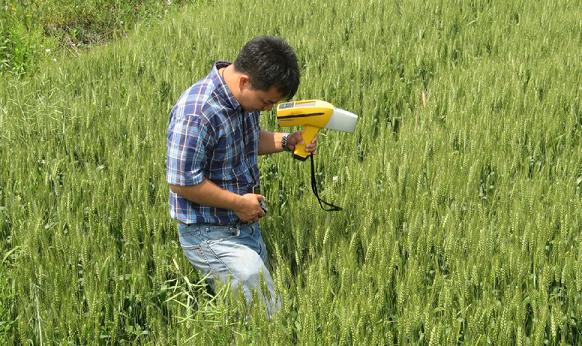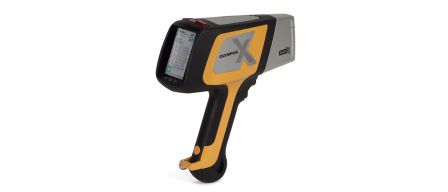Focus: BackgroundPortable XRF is a well documented and valuable tool for regulatory driven analysis of heavy and priority pollutant metals in residential soils. This non-destructive method with its quick analysis time and high quality measurement capability make it ideal for field assessments, particularly of large areas. In fact, US EPA Method 6200 encourages portable XRF screening for high density, high volume sampling to correctly characterize a site1. Portable XRF is also used for numerous agricultural analyses. | 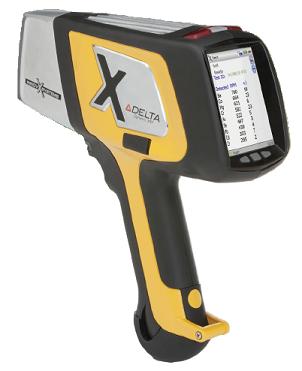 |
Challenge
The safety of food sources is becoming increasingly important as the human population expands. As the demand for food sources has grown, precision agriculture and peri-urban farming are becoming more commonplace. However, farming in areas adjacent to industrial and other urban facilities raises questions about the safety of food crops grown in soil or irrigated with water fraught with pollution.
Elevated levels of As, Hg, Cu, Cd, Cr, Zn and Pb, are commonly found on the outskirts of metallurgy, electroplating, and steel making industries as well as petrochemical refineries, foundries, ammunition plants and shipbuilding facilities.
Portable XRF measures pollutant metals in food source soils
" … The use of Portable XRF (PXRF) spectrometry allows for high intensity soil analysis in the field with results obtained and spatially modeled on-site. The high quality data and quick analysis time of this non-destructive, portable technique make it ideal for soil and agri-science investigations. …" Dr. David Weindorf, LSUAg Center
These can seep into the soil, vegetation and ground water of peri-urban gardens. Additionally, heavily traveled roadways typically have elevated levels of Pb, Mn and Zn which also seep into the soil of these gardens.
Conversely, urban sprawl into former rural areas once heavily farmed with unregulated pesticides on crops and livestock, such as As and Pb, introduces remnant pollutants to new community gardens.
The concentrations and mobility of these pollutants can be effected by the soil parent material and indigenous fauna, as well as by modifications brought on from climate changes, natural developments and human activity. These modifications include variations in dissolved organic carbon, the acidity of the soil and underground water, as well as in nutrients and fertilizers.
Solution
Many investigators, such as the research team at LSU Ag Center, have demonstrated that portable XRF is an integral tool for the quality assessment of peri-urban agriculture. Real-time linking of GIS/GPS data with XRF data and the correlation with ICP selective extraction methods enhances agriculture management. This encompasses irrigation as well as pesticide and nutrient use in soils for healthy and profitable food crops.
XRF Specifications
The Handheld XRF with a 4-watt X-ray tube and Silicon Drift Detector (SDD) is ideal for analyses that must detect and quantify both pollutant (heavy) metals and nutrients (light elements). This tool, when configured with 3-beam (3-power/filter settings) soil and 2-beam mining modes, takes full advantage of Compton normalization and Fundamental Parameter pre-calibrated analytical algorithms. Field power is provided by rechargeable Li-ion batteries and control of the instrument and data storage is through a miniaturized on-board computer.
When fully integrated with a GPS-GIS system, the Innov-X Xplorer provides instant metal mapping, ideal for precision agriculture.
|
|
| Element of Interest |
DELTA Premium
3-Beam Soil Ta/Au Tube, SDD |
| P | 500 - 700 |
| S | 100 - 250 |
| Cl | 60 - 100 |
| K | 30 - 50 |
| Ca | 20 - 30 |
| Ti | 7 - 15 |
| Cr | 5 - 10 |
| V | 7 - 15 |
| Mn | 3 - 5 |
| Fe | 5 |
| Co | 10 - 20 |
| Ni | 10 - 20 |
| Cu | 5 - 7 |
| Zn | 3 - 5 |
| Ga | 3 - 5 |
| As | 1 - 3 |
| Se | 1 - 3 |
| Br | 1 - 3 |
| Rb | 1 |
| Sr | 1 |
| Zr | 1 |
| Mo | 1 |
| Ag | 6 - 8 |
| Cd | 6 - 8 |
| Sn | 11 - 15 |
| Sb | 12 - 15 |
| Ba | 10 - 20 |
| Hg | 2 - 4 |
| Tl | 2 - 4 |
| Pb | 2 - 4 |
| LODs reported in PPM are optimal. Measurements were taken in air for 120 seconds per beam. Standards used were in a clean, homogenous SiO2 matrix without interfering elements. | |
DELTA Premium PC Software: A reference sample spiked with approximately 500ppm Pb (Innov-X Sample 408) was used for these repeat readings. A 60 second measurement time was used for each reading. +/- error shown is 2-sigma, 95% confidence. | 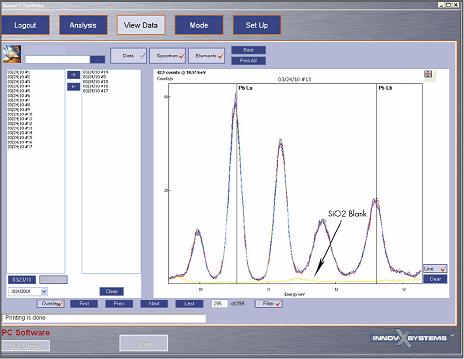 |
 | DELTA Premium PC Software: Analysis results (PPM) for NIST standards are shown at right. A 60 second measurement time was used for each standard. +/- error shown is 2-sigma, 95% confidence. |
Data collection, peri-urban farm, Nanjing, China
References:
1: USEPA Method 6200: Field Portable X-ray Fluorescence Spectrometry for the Determination of Elemental Concentrations in Soil and Sediment. For detailed information, see: http://www.epa.gov/wastes/hazard/testmethods/sw846/pdfs/6200.pdf
2: Innov-X Academic Grant Awarded for a second time to Principal Investigator, Dr. David Weindorf. He and his colleagues are researchers at LSU AgCenter in Baton Rouge, LA, USA and at the Chinese Academy of Sciences in Nanjing, China. For additional information on their Peri-urban research using the Innov-X Systems Omega Xpress Handheld XRF and more, please refer to the publications listed by Dr. Weindorf at LSU at: http://www.lsuagcenter.com/en/communications/authors/DWeindorf.htm
